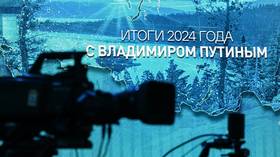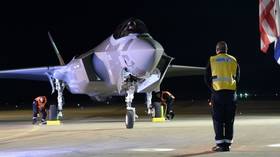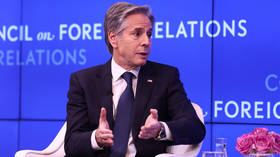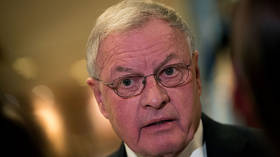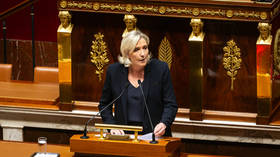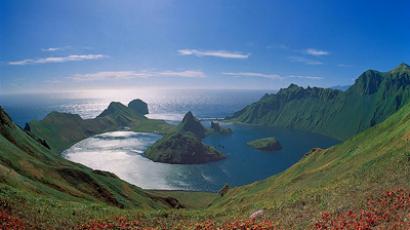Japanese cabinet chief gazes at Kuril Islands from a distance
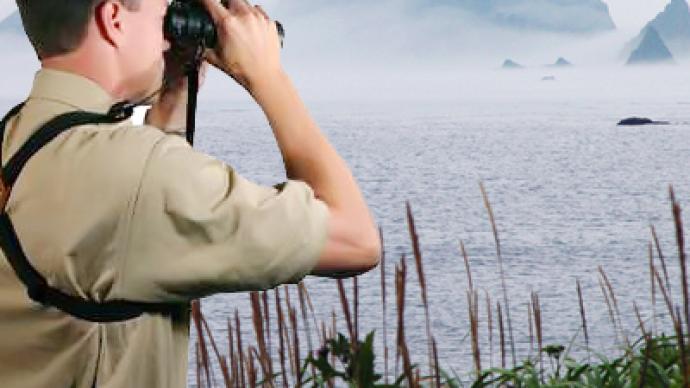
In response to recent visits by Russian officials to the Southern Kurils, Japan’s Chief Cabinet Secretary Yukio Edano has examined the Northern Territories – as the archipelago is known by the Japanese – from Hokkaido.
During his two-day visit to Japan’s northernmost islands that kicks off on Saturday, Edano is also planning to meet with former citizens of the Kurils who left the islands after Soviet troops entered the territory in 1945, RIA Novosti reported.“The northern territories issue is a problem of not only former residents of the islands, but of the entire Japanese nation,” he told a media conference in Tokyo. The Chief Cabinet Secretary added that he would like raise the degree of understanding of this problem within the Japanese public. It is not the first time that Japanese officials perform such ritual inspection of the islands – Kunashir, Shikotan, the Khabomai Rocks and Iturup – that have been subject to a bitter dispute between Moscow and Tokyo. On December 4, the Japanese Foreign Minister Seiji Maehara inspected the territories from a coast guard airplane. Edano’s overlook of the Sothern Kurils comes shortly after a Russian delegation led by Regional Development Minister Victor Basargin visited Kunashir.Tokyo has specifically intensified its claims over the Kurils – that have been in Russian control since the end of World War Two – after President Dmitry Medvedev visited one of the islands on November 1 last year. Tokyo called the trip “very regrettable” and stated that the visit “hurts the feelings of the Japanese population”. Russian Ambassador to Tokyo was summoned to the country’s Foreign Ministry and handed a note of protest. Moscow’s response was clear: the Kuril Islands are part of Russian territory. As for Tokyo’s reaction to the trip, the Russian Foreign Ministry called it an “unacceptable demarche”. Since the beginning of 2011, passions have been running even higher. On February 7, when Japan marks the Day of Northern Territories, Prime Minister Naoto Kan led a rally in the capital and demanded the return of the islands, condemning visits to the Kurils by Russia’s top officials. The rally was attended by 1,500 people. Japanese say the Shimoda Treaty between their country and Russia that was concluded on February 7, 1855, supports their claim.With Japanese officials adding fuel to the fire, anti-Russian sentiment is growing in the country.The same day, Japanese ultra-right campaigners desecrated the Russian flag in front of the Russian Embassy in Tokyo which was seen as an insult by many Russians. Moscow expressed its protest over the act of vandalism and urged the Japanese authorities to prosecute the nationalists.Moscow was “indignant” by statements from high-ranking Japanese officials as such comments are “impermissible from the point of view of diplomatic ethics,” the Russian Foreign Ministry said in a note of protest. It described the anti-Russian pronouncement as the result of Tokyo’s official policy.On February 9, just ahead of the Japanese Foreign Minister’s visit to Moscow, President Medvedev ordered the deployment of weaponry on the Kuril Islands. He said that “the additional weapons to be deployed there must be sufficient and modern in order to ensure the security of the islands as an integral part of Russia”.On February 11, Foreign Minister Sergey Lavrov, after a meeting in Moscow with his Japanese counterpart Seiji Maehara expressed regret that the visit came amid actions and statements by Tokyo, which Moscow considered “unacceptable”. He added that any talks with Japan about a peace treaty had no chance for success unless Tokyo had radical approaches on the matter. This year marks 66 years since the end of the WW2, but the two states still have not signed a peace treaty because of their territorial dispute.
Washington takes Tokyo’s side in the dispute, Georgia ready to follow
The US recognizes Japan’s sovereignty over the Kuril Islands, the American Embassy in Moscow told Interfax on Friday. The US government also believes that finding a peaceful and mutually acceptable solution to the problem for Russia and Japan “would serve the interests of all the states committed to peace and stability in the region”. The agency, though, does not name the person who voiced the stance. Meanwhile, US-backed Georgia is also planning to join the game. The former Soviet republic is not that much devoted to seeking a solution to the dispute between Russia and Japan, as it is in seeking to pursue its own interests. Tbilisi is ready to sell its support to Tokyo in exchange to Japan recognizing South Ossetia and Abkhazia as territories “occupied” by Russia. Shortly after Tbilisi attacked the South Ossetian capital of Tskhinval in August 2008, Moscow recognized the independence of the two republics. Georgia claims the regions were “occupied” and enjoys American support in its position. That is despite conclusions made in an EU-sponsored report. Written by Swiss diplomat, Heidi Tagliavini with the help of 30 European experts, the report stated that it was Georgia that launched an attack against South Ossetia.On Thursday, the chairman of the parliamentary commission on the restoration of Georgia's territorial integrity, Shota Malashkhia had a meeting with Japan’s Ambassador to Tbilisi Masayoshi Kamokhara. Malashkhia told the diplomat that the Georgian parliament was ready to consider the issue of the “occupied” islands, News-Georgia reported. According to Malashkhia, the ambassador said that it could also be possible that Japan, for its side, would consider a similar step concerning South Ossetia and Abkhazia.
Sergey Strokan from Russia's Kommersant newspaper thinks it is a big surprise that Washington has once again underlined its position over the Lesser Kuril chain saying the territory belongs to Japan. “This even comes as a double surprise, because there was a San Francisco agreement of 1951 where they [Japan] gave up all the claims for the Kuril Islands and in addition to that, as you know, the United States were our ally in the Second World War, so there is an attempt to reconsider the results of the Second World War on the part of our ally,” he said.
Viktoria Panova from Moscow University of International Relations said that by supporting Japan in its claim to the Kuril Islands, Washington is trying to secure its influence on the country. “America has always been supporting its ally [Japan] and Japan is a country with limited sovereignty and this sovereignty does depend a lot on its ally, so America has to support it in order to make sure that it does not go out of line,” he said. “Japan does have enough strength just to start doing its own things but then America loses all its influence over the country.”
Fred Weir from the Christian Science Monitor points out that in 1956 the Soviet Union did meet with the Japanese and agreed on the compromise that Shikotan and the Khabomai Rocks would be returned to Japan. However, the Americans intervened and blocked the deal.“In 1956 it was the Americans who torpedoed that agreement by telling the Japanese that if you let the Soviets keep… those islands that would probably mean we would have a claim on Okinawa. And the Japanese backed out of it then,” he explained. “The problem has been frozen in this configuration ever since.”“In the Cold War Washington supported the Japanese position for Cold War reasons,” he added. “Now, I think, they are just following their own well-established foreign policy line. I think that’s all it is.”


